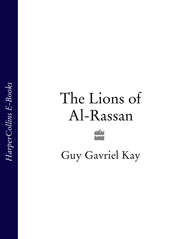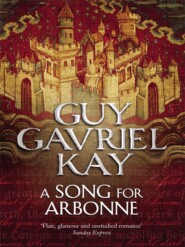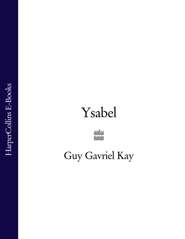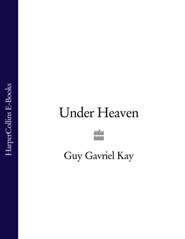По всем вопросам обращайтесь на: info@litportal.ru
(©) 2003-2025.
✖
The Last Light of the Sun
Автор
Год написания книги
2018
Настройки чтения
Размер шрифта
Высота строк
Поля
About the Author (#litres_trial_promo)
Also by Guy Gavriel Kay (#litres_trial_promo)
About the Publisher (#litres_trial_promo)
Characters
(A Partial Listing)
The Anglcyn
Aeldred, son of Gademar, King of the Anglcyn
Elswith, his queen
Osbert, son of Cuthwulf, Aeldred’s chamberlain Burgred, Earl of Denferth
The Erlings
Thorkell Einarson, “Red Thorkell,” exiled from Rabady Isle
Frigga, his wife, daughter of Skadi
Bern Thorkellson, his son
Siv, Athira, his daughters
Iord, seer of Rabady, at the women’s compound
Anrid, a woman serving at the compound
Halldr Thinshank, once governor of Rabady Isle, deceased Sturla Ulfarson “Sturla One-hand,” governor of Rabady Isle
Thira, a prostitute in Jormsvik
Kjarten Vidurson, ruling in Hlegest
Siggur Volganson, “the Volgan,” deceased
Ingemar Svidrirson, of Erlond, paying tribute to King Aeldred
Hakon Ingemarson, his son
The Cyngael
Ceinion of Llywerth, high cleric of the Cyngael, “Cingalus”
Dai ab Owyn, heir to Prince Owyn of Cadyr
Alun ab Owyn, his brother
Gryffeth ap Ludh, their cousin
Brynn ap Hywll, of Brynnfell in Arberth (and other residences), “Erling’s Bane”
Enid, his wife
Rhiannon mer Brynn, his daughter
Helda, Rania, Eirin, Rhiannon’s women
Siawn, leader of Brynn’s fighting band
Other
Firaz ibn Bakir, merchant of Fezana, in the Khalifate of Al-Rassan
Part One
Chapter I
A horse, he came to understand, was missing.
Until it was found nothing could proceed. The island marketplace was crowded on this grey morning in spring. Large, armed, bearded men were very much present, but they were not here for trade. Not today. The market would not open, no matter how appealing the goods on a ship from the south might be.
He had arrived, clearly, at the wrong time.
Firaz ibn Bakir, merchant of Fezana, deliberately embodying in his brightly coloured silks (not nearly warm enough in the cutting wind) the glorious Khalifate of Al-Rassan, could not help but see this delay as yet another trial imposed upon him for transgressions in a less than virtuous life.
It was hard for a merchant to live virtuously. Partners demanded profit, and profit was difficult to come by if one piously ignored the needs—and opportunities—of the world of the flesh. The asceticism of a desert zealot was not, ibn Bakir had long since decided, for him.
At the same time, it would be entirely unfair to suggest that he lived a life of idleness and comfort. He had just endured (with such composure as Ashar and the holy stars had granted him) three storms on the very long sea journey north and then east, afflicted, as always at sea, by a stomach that heaved like the waves, and with the roundship handled precariously by a continuously drunken captain. Drinking was a profanation of the laws of Ashar, of course, but in this matter ibn Bakir was not, lamentably, in a position to take a vigorous moral stand.
Vigour had been quite absent from him on the journey, in any case.
It was said among the Asharites, both in the eastern homelands of Ammuz and Soriyya, and in Al-Rassan, that the world of men could be divided into three groups: those living, those dead, and those at sea.
Ibn Bakir had been awake before dawn this morning, praying to the last stars of the night in thanks for his finally being numbered once more among those in the blessed first group.
Here in the remote, pagan north, at this wind-scoured island market of Rabady, he was anxious to begin trading his leather and cloth and spices and bladed weapons for furs and amber and salt and heavy barrels of dried cod (to sell in Ferrieres on the way home)—and to take immediate leave of these barbarian Erlings, who stank of fish and beer and bear grease, who could kill a man in a bargaining over prices, and who burned their leaders—savages that they were—on ships among their belongings when they died.
This last, it was explained to him, was what the horse was all about. Why the funeral rites of Halldr Thinshank, who had governed Rabady until three nights ago, were currently suspended, to the visible consternation of an assembled multitude of warriors and traders.
The offence to their gods of oak and thunder, and to the lingering shade of Halldr (not a benign man in life, and unlikely to be so as a spirit), was considerable, ibn Bakir was told. Ill omens of the gravest import were to be assumed. No one wanted an angry, unhoused ghost lingering in a trading town. The fur-clad, weapon-bearing men in the windy square were worried, angry, and drunk, pretty much to a man.
The fellow doing the explaining, a bald-headed, ridiculously big Erling named Ofnir, was known to ibn Bakir from two previous journeys. He had been useful before, for a fee: the Erlings were ignorant, tree-worshipping pagans, but they had firm ideas about what their services were worth.
Ofnir had spent some years in the east among the Emperor’s Karchite Guard in Sarantium. He had returned home with a little money, a curved sword in a jewelled scabbard, two prominent scars (one on top of his head), and an affliction contracted in a brothel near the Sarantine waterfront. Also, a decent grasp of that difficult eastern tongue. In addition—usefully—he’d mastered sufficient words in ibn Bakir’s own Asharite to function as an interpreter for the handful of southern merchants foolhardy enough to sail along rocky coastlines fighting a lee shore, and then east into the frigid, choppy waters of these northern seas to trade with the barbarians.











